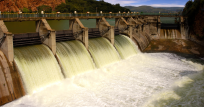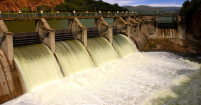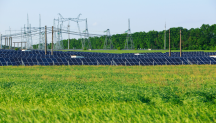

New IRENA report highlights hydropower’s evolving role
Newsletter
The majority of hydropower assets, built several decades ago, need to be upgraded according to the report.
Abu Dhabi, United Arab Emirates, 13 February 2023 – Current trends in the power sector have prompted changes in the role of hydropower, creating a need to adjust the way these assets are designed, operated and maintained, according to a new report by the International Renewable Energy Agency (IRENA). “The changing role of hydropower: Challenges and opportunities”, produced in the context of IRENA’s Collaborative Framework on Hydropower, provides a snapshot of the current status of hydropower and lays out a vision of how to realise its potential.
“Hydropower has been an effective source of clean power generation for more than a century,” said IRENA Director-General Francesco La Camera. “However, with the rapidly evolving energy landscape, it is important to reevaluate its future role and leverage recent technological advancements that can maximise its potential while ensuring its sustainability and climate resilience.”
According to IRENA’s 1.5°C Scenario, if the world is to completely decarbonise and meet the climate goals set in the Paris Agreement, hydropower installed capacity, including pumped storage hydropower, should more than double by 2050. This will require annual investments in hydropower to grow roughly fivefold.
However, the report underscores that most hydropower potential lies in developing countries, and financing institutions need to work together with governments to overcome local risks and limitations, and funnel much-needed investment into these regions and countries.
According to the report, hydropower, despite being the most mature renewable technology, faces several challenges including: modernising ageing fleets to meet modern power system requirements; attracting new investments; and updating market structures and business models that do not reward all of the services provided by hydropower beyond power generation.
The report also emphasises that the planning and development of hydropower will only be successful if aspects of sustainability and resilience are taken into consideration.
Read “The changing role of hydropower: Challenges and opportunities” to learn more about the key actions policy makers can take to accelerate the deployment of hydropower in a way that is in line with its changing role.




